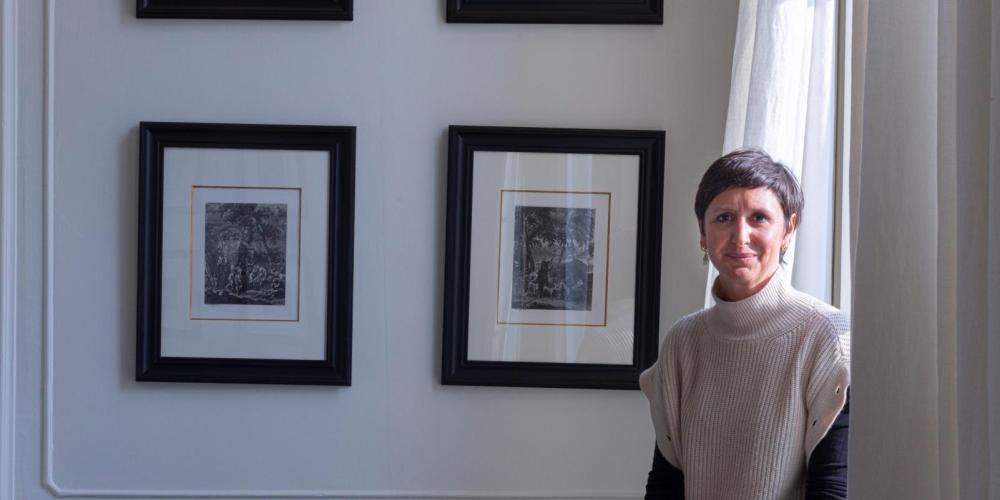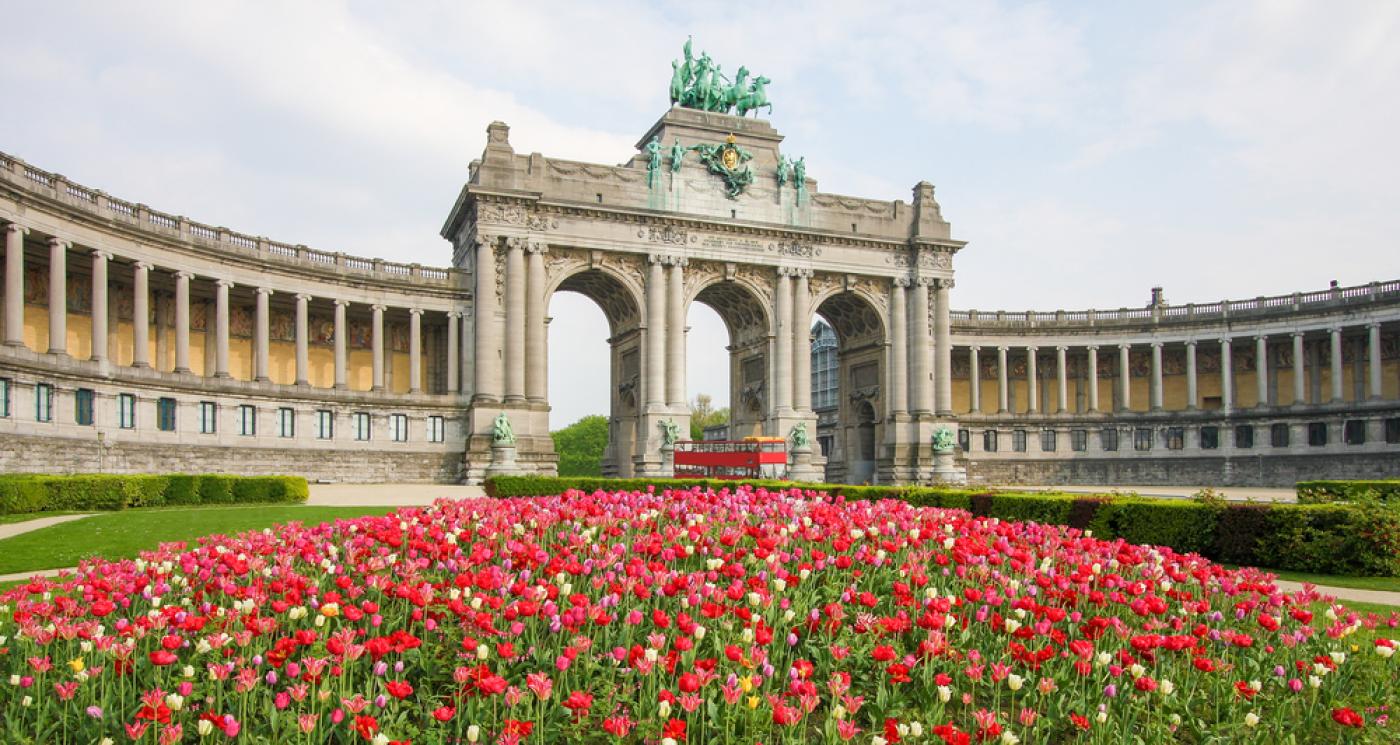
Isabel Casteleyn, who studied law at the Vrije Universiteit Brussel (VUB), will soon take the reins as director of the Jubelpark project, which begins on 13 May. This ambitious initiative aims to breathe new life into the Brussels park, with renovations and updates to the museums and site. It will also foster connections with the European district through a vibrant programme of activities, all leading up to the bicentennial celebration of Belgium in 2030. For Isabel, this role isn’t an obvious next step in her career: “That’s exactly why it makes sense. I get bored too quickly otherwise,” she says.
You were born and raised in Brussels. Has the Jubelpark always been in your life?
Isabel Casteleyn: "My grandfather was a great lover of history. When I was a child living in Woluwe, he would often take me to the museums there. Later, when I was a mother and we lived in Schaarbeek without a garden, you could often find me and my son in the park, especially at the climbing frame, which he called Spiderman’s house. I spent countless hours there.”
Does this project hold emotional significance for you?
“Yes, it does. I live near the park again now and pass it every day on my bike. It’s really ‘my’ neighbourhood. It’s wonderful to have such a significant investment close to home. Jubelpark is also a vital location for our capital. Everyone entering Brussels sees the Triumphal Arch, and with the park’s proximity to the European district, there will be a direct link. Once completed, it will boost Brussels significantly.”

Given your previous roles in immigration law, as a spokesperson for minister Melchior Wathelet, and CEO of private members’ club TheMerode, is this position a logical step in your career?
“I’ve never taken a logical step in my career, so for me, this is logical! I get bored easily, so I need a job with plenty of new things to learn, where I can grow and where every day is different. I bring a lot of experience to organising the bicentennial, programming and creating synergies among stakeholders. However, the renovation aspect is new to me. For this, I will lean on the expertise of architects and engineers, taking on a more coordinating role.”
Which aspect of this job are you particularly looking forward to?
“I love bringing people together around a project. I’m just starting, so many things are still not finalised. But what’s certain is that we’ll encourage citizen participation and seek synergies where possible. The activities will also need to really cater to the diverse population of our capital. With so many different stakeholders involved, it’s a challenge to get everyone on the same page, but that’s something I enjoy and am good at.”
How do you manage to align everyone’s interests?
“I’ve learned that to do this effectively, you must listen first. Especially when you are new, it’s crucial to meet with all parties without taking too much of the floor yourself. If you listen carefully, you’ll find that even those who disagree have much in common. Initially, I see people one-on-one to pinpoint these commonalities. Then, I bring them together and highlight these shared interests.”
Did you already have this skill as a student?
“No, I was a very engaged and active student. I thought I knew everything and was going to change the world. You only learn to listen as you get older. Ironically, I learned to keep quiet during my three years as a spokesperson.”
How relevant have your law studies been to your various roles since graduating?
"Yes, deep down, I’m still a lawyer. That instinct always stays with me, especially when contracts come into play. As CEO of TheMerode, we had to reexamine our energy contracts during the energy crisis. My colleagues tended to tense up, but I loved digging into the details of the contract. When I left TheMerode, I even briefly considered taking the magistrate’s exam. Law continues to have a hold on me.”
Are there any professors you remember fondly?
“Once, I had a blackout during a criminal law exam. I was sitting in front of the professor and couldn’t remember anything due to stress. When I told him I couldn’t do it and wanted to leave, he wouldn’t let me go. He said, ‘I’ve seen you in every class. You’ve actively participated. Just calm down, and you'll manage.’ I ended up taking 10 more minutes to stabilise, and then successfully completed the exam, thanks to him. I’ll never forget that. I believe that sort of thing only happens at VUB.”
Biography: Isabel Casteleyn
Isabel Casteleyn pursued her legal studies at VUB. Following her graduation, she spent approximately a decade specialising in immigration law. Subsequently, Isabel joined the office of Minister Wathelet, serving in various capacities including that of spokesperson. She then moved on to become an advisor at the CREG, a partner at akkanto—a strategic communications agency—and CEO of the social club, TheMerode.